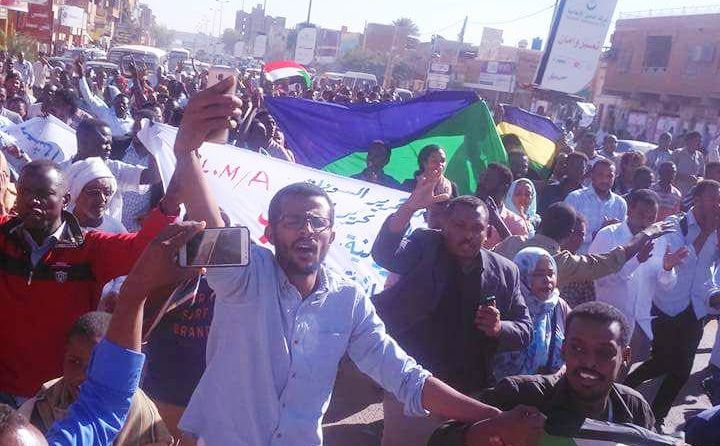Anti-austerity protests continue to rock Sudan

January 31, 2018 (KHARTOUM) – Sudanese riot police on Wednesday used tear gas and batons to disperse large protests against price hikes and deteriorating living conditions at several areas in Khartoum North.
Since the release of the 2018 budget last month, peaceful protests erupted in a number of Sudanese states leading to the killing of a high school student in West Darfur State and detention of dozens of opposition activists across the country.
The opposition forces on Tuesday called its supporters and the Sudanese people to take to streets and join what they called the “Salvation March” on Wednesday to protests against the recent economic measures.
However, police and security forces since early Wednesday morning cordoned off streets and alleys leading up to the gathering square at Al-Sha’abia neighbourhood in Khartoum North.
Despite the strict security measures, hundreds of demonstrators gathered at a number of areas and marched along the major streets chanting “No, no to high prices, No to the government of hunger” and “Peaceful, Peaceful against the thieves”.
The police and security services attacked the protesters violently using tear gas and batons.
According to opposition sources, more than 10 activists including the member of the Sudanese Communist Party’s Central Committee Amal Jabr Allah have been detained.
Meanwhile, videos and pictures circulating on social media have shown similar protests in the cities of Medani and Singa, Gazira State and Zalingie, capital of Central Darfur State.
To quell anti-austerity protests in Khartoum, Sudanese security forces in September 2013 carried out a brutal crackdown on the peaceful demonstration, killing nearly two hundred protesters say human rights groups or 86 people according to government figures.
Opposition forces attribute the deteriorating living condition and economic meltdown to corruption, lack of production policies, and lack of economic reform vision following the secession of South Sudan.
Sudan lost 75% of its oil reserves after the southern part of the country became an independent nation in July 2011, denying the north billions of dollars in revenues. Oil revenue constituted more than half of Sudan’s revenue and 90% of its exports.
(ST)
